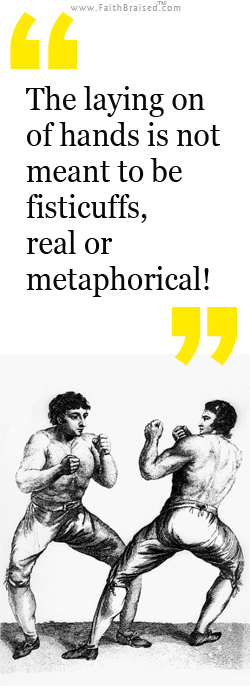My father sent me to the market that morning. I was in no hurry. He left at the same time to sail for Athens on business. My mother and sisters left the week before to visit family in Troas. They took the house servants with them. I was the only one left at home. As I came near the market I saw a group of my friends going somewhere together.
Timothy, who was leading them, called out to me. “Jason, come with us! We are going to meet Paul and Barnabus. Have you heard of them?” I had not, and neither had the others in the group before that day.
As I joined them, Timothy began to explain. “Barnabus and Paul are Jews like my mother’s family. They came to Asia to tell people about Jesus, who rose from the dead after being crucified.” I did not know what to say about this. He continued as we walked along, “They came to Antioch and told about Jesus in the synagogue there. The people begged them to speak again the next week. Evidently the power of God was with them to heal people in the town as they told about Jesus through the week.
“Nearly the whole city showed up at the synagogue the next Sabbath. The synagogue leaders were jealous. They began to oppose Barnabas and Paul before the crowd. Still, many Jews and Greeks from the city believed what Paul and Barnabas taught about Jesus. I have heard that they intend to come this way and I am hoping they will get here this morning.” As we came to the edge of town we saw men coming toward us on the road from Antioch. Timothy called to them, certain they were Barnabas and Paul. Sure enough, they were the apostles. When they saw us they decided we were the audience they were looking for. They led us off the road and began teaching.
We were all stunned at their message. They told us Jesus was the Son of the only true God. This was strange to our ears, but somehow what they were saying rang true. They did not sound like trained orators. That was part of why they were so convincing. I was moved as Barnabas spoke. There was no question that he cared deeply about us. I found myself hoping that what he said was indeed true. After Barnabas finished, Paul stood to speak. As he spoke about true righteousness and faith and the love of God, I fell to my knees and cried out for the forgiveness and grace bought for me by Jesus on a Roman cross.
We all followed the apostles back into the city. We had not seen any miraculous signs while they preached to us on the outskirts of town. But I was not surprised when Barnabas prayed for a sickly child who was wistfully watching the other children play. Immediately the child grinned and rose up to join the others.
Just outside the market at the center of town they gathered a crowd and began to preach. As Paul preached he moved through the throng. He came near the young man that we have always called Solus. I am not sure if that is really his name, but like everyone else in the crowd, I knew his story. He was born lame. His feet and legs were shriveled. He could not walk at all. Paul reached out and took him by the hand to raise him to his feet. Right there in front of everyone his feet and legs were restored. All the people were amazed.
By then, a group had arrived from Antioch to stop Paul and Barnabas from teaching about Jesus. They had already been stirring up people to oppose Paul and Barnabas. They were enraged that the man was publicly healed. They immediately seized Paul. We managed to hustle Barnabus away as they dragged Paul out of town. Adonis and his younger brother took Barnabas to their home to save him from the same fate as Paul.
To the rest of us Timothy said, “We need to follow them and see what they have done to Paul.” When we caught up to the crowd they were throwing stones at the apostle. We watched in horror as several stones struck his head. He crumpled to the ground. We were fairly certain that they had killed him. They congratulated one another as they turned back toward the city.
Timothy led the way to Paul before they were out of sight. We were not going to leave his body out there on the side of the road. But when Timothy laid his hand on his body, Paul moved and shook his head. His head was bleeding profusely. After a moment he stood and began trudging back into town. I rushed to his side to support him. The rest of us surrounded him and would have fought anyone who tried to attack, but the men who stoned him had disappeared up the road. We didn't see them as we came into town. They may have started back to Antioch lest the magistrate question them. We took Paul to the home of Adonis where Barnabus was waiting anxiously. After his wounds had been dressed, Paul gathered us all together to encourage us to remain faithful to Jesus.
Leonides, who was older than the rest of us, asked why those people had been so angry. I was wondering the same thing. We listened intently as Paul explained.
“You all need to understand this. We follow a crucified Savior. As people hated him, they will hate us. Our speaking to them about Jesus will be a kind of judgment. It will reveal what is in their hearts. Some will gladly receive you and repent. Some will be enraged because they hate the true God and His Son Jesus. But Jesus has given the Holy Spirit of God to His followers. This includes you. The Spirit strengthens all of us and will empower us to be faithful.” I asked if that was how he recovered from being stoned. Paul thought for a moment and said, “Possibly.”
Hector, standing behind the rest of us, asked, “Is that how you healed the lame man?”
“In a way,” Paul answered. Then he said, “Actually, I did not heal him at all. Jesus did that. I saw that the man had faith to be healed. But yes, Jesus works through the Holy Spirit.
“God’s Spirit will bear witness of Jesus. The Spirit will speak through you. Sometimes he will even break the hearts of those who oppose Jesus. I was one of those people. I thought I was serving the God of my fathers by arresting and charging those who followed the way. I was on my way to another city to arrest the followers of Jesus who had fled there. On my way Jesus appeared to me in a light brighter than the sun. He called me to repent. By this undeserved grace everything in my life was changed. I now preach the One whom I hated and blasphemed.
This story is based on what Jesus said in John 15:18-27.
Father, make us faithful even in the face of fierce opposition.
http://thinkinginthespirit.blogspot.com/
http://theanchorofthesoul.blogspot.com/
http://watchinginprayer.blogspot.com/
http://writingprayerfully.blogspot.com/
https://www.facebook.com/bdavidyoung49
Website
YouTube
Amazon Author's Page





